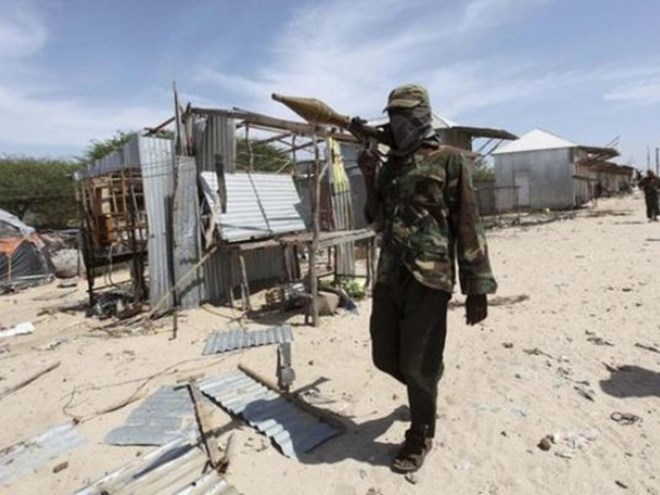
Monday May 7, 2018
By EDWIN AYIEKO
An Al Shabaab soldier carries a rocket-propelled grenade as he patrols along the streets of Dayniile district in Southern Mogadishu, March 5, 2012. Photo/REUTERS
Terror is driven by networks in the modern world. Understanding these networks is fundamental in fighting the threats these groups pose. With modern technology terrorists have access to most parts of the globe and an array of weapons, including everyday items that can be easily weaponised. The evolution of the Salafi movement of Islam is the ideology behind al Qaeda, the forerunner of terrorist groups. Many Muslim share the Salafi belief but fall far short of the violence propagated by these groups.
However law enforcement and non-Muslims are usually unable to distinguish between peaceful Islamic preaching—dawah—and the terror groups’ message. The ideology of violence against non-Muslims, foreign governments and civilians evolved after the Soviet invaded Afghanistan in December 1979. Al Qaeda was formed during this time and it recruited foreign volunteers to fight the Soviet army. Salafi Jihad combines enthusiasm and eagerness to die and kill for the cause or shahada (testimony of faith).
The terrorist has been stereotyped as naïve, poor, uneducated, unsophisticated and single in his/her outlook. Yet data show that terrorists are more educated that the average person. Data also show terrorists are global citizens who are well travelled and familiar with many countries, especially in the Middle East.
Lack of equal opportunities must be addressed. The random arrest of low level individuals in the terror networks is not enough as it only displaces but does not eliminate the threat. Surveillance must be increased and changes in lifestyles closely monitored. Request for new passports, loss of passports or frequent travels should sound the alarm to the intelligence community.
Friends and relatives of terror suspects should be put under surveillance as well as Salafi mosques, congregations, suspects’ phone conversation, emails, and social media activities. All this should be done with utmost care so as not to infringe on human rights and civil liberties. Intelligence organisations should infiltrate jihad networks.
Deradicalisation programmes must be enhanced. Imams of fundamental mosques who reject violent jihad should be roped into the war on terror; they are an excellent source of information on their congregations. The number of special officers with knowledge on the Arabic language and Islam need to be increased.
Working with media, NGOs and the criminal justice system to control and condemn violence should be enhanced. Show of tolerance by governmental agencies to certain good programmes is commendable. We need to remember that the networks are robust and self-growing; precaution must be taken to ensure the networks are disrupted and not allowed to grow back.
The rebuilding of Somalia must be done with minimal outside interference. If not then the KDF troops over there will always be considered infidels in Dar al-Islam. Citizens must be encouraged to participate in politics. Somalia is a great opportunity and danger depending on how we handle it. We must invest in understanding our neighbours and Islam, and avoid stereotyping. We must also understand the Somali religious, political, economic and social landscape.